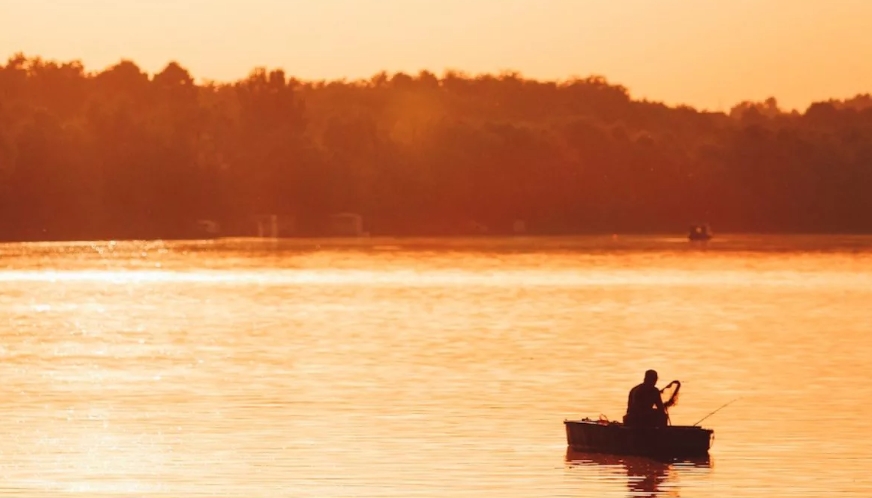
5 Oct
How is the climate crisis affecting fishing?
As the climate crisis progresses, we will see bigger and bigger changes in fishing too. Some are already noticeable.
This summer, with temperatures up to 40 degrees, has reminded many of us again: We are in the middle of a climate change. The English gazette Angling Times asked Professor Mark Everard what the climate crisis means for fishing.
This means the climate crisis for fishing
In the coming years there will be more and more periods of heat and thus severe drought. While heat-loving species such as grass carp cope well with the heat, others such as grayling, salmon and trout are on the verge of heat collapse. Lower water levels and critical oxygen levels also make the fish easy prey for cormorants and otters.
In order to protect the stocks, there will be a ban on fishing in particularly affected waters. Many pond owners are now planting more trees on their water bodies. The fish need this natural shade to survive.
Fish need more help
Fluctuations in temperature can also make spawning successful or absent. This mainly applies to barbels. Chubs, however, cope well with hot summer temperatures if they are not robbed of their bedding by floods caused by heavy rain. Catfish and Amure, on the other hand, can finally spawn at water temperatures of around 25 degrees in our latitudes – bad news for our native fish species.
The dandruff carriers will need more help in the years to come. We need to reclaim old habitats, create spawning gravel bars, provide cover for fry, plant trees for shade, and create new wetlands. Renaturation projects by fishing clubs play a crucial role in enabling fishing to continue despite the climate crisis.
Health is the most important thing
But the summer heat can not only harm the fish, but also us anglers. The number of skin cancers caused by too much and too long exposure to the sun is piling up. Or you suffer a heat stroke when the temperature is well over 30 degrees. On the other hand, wearing light cotton clothing, drinking plenty of fluids and applying a sunscreen with a strength of 50 to uncovered skin can help. And always remember: No fish is worth risking your health for.
However, hot temperatures in summer also ensure that new fish species feel at home with us. Tuna are now being caught off our coasts again, while cod and mackerel are declining and migrating north.
Copyright © 2021 PDSConsulting Contact us: info@pdsconsulting.co.uk.